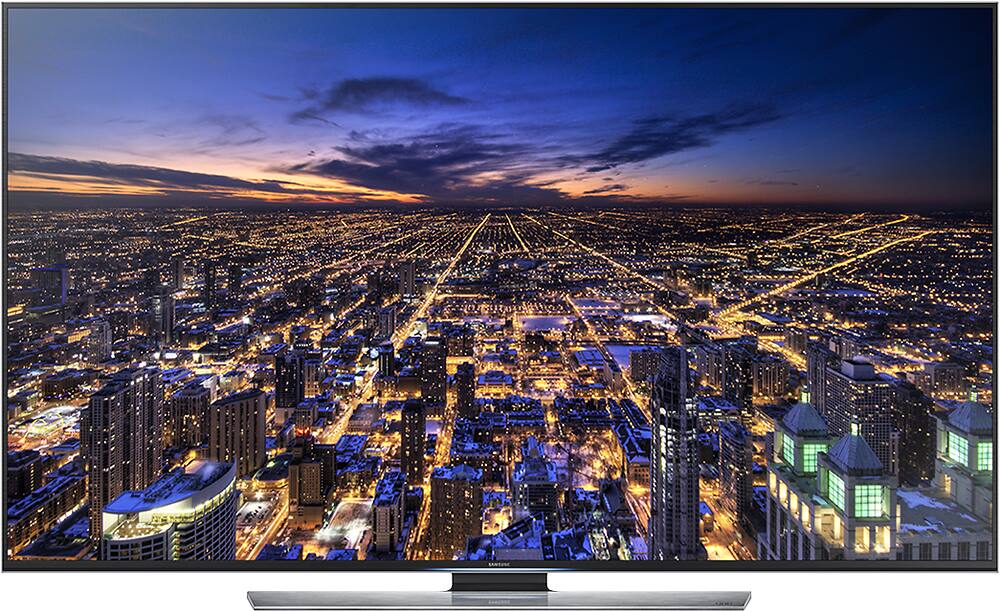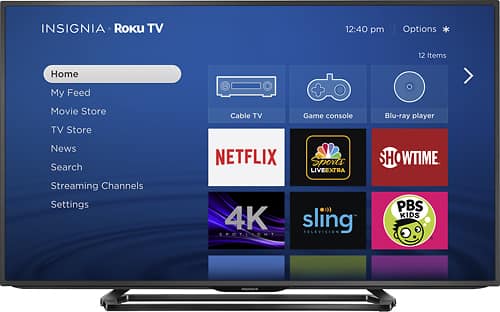Flatscreen or curved? HD or 4K? Use this expert guide to cut through the sales jargon and find the best TV for you.

Buying a new TV There are hundreds of televisions available to buy - from cheap TVs for a bedroom or study, to large-screen sets that give you a cinema-like experience at home. While it's great to have such choice available, knowing what you want helps make the decision much simpler. This guide will help you choose the right size and brand of TV for your budget. You can also use the tool below to see the screen type, features and connections you'll need. When you're ready, browse our independent and expert TV reviews to find the set that ticks all your boxes.
What size TV should I buy? With the TV market continually shifting towards larger screens, it's now hard to get a top quality set smaller than 40-inches in size. However, bear in mind that with TV bezels (the frame around the screen) shrinking, larger sets might not be as big as you think. You can use our interactive online tool to find out what size of TV you should buy. We also publish size dimensions (depth, height and width) for all TVs that we test, so make sure you check out the Specifications tab in each review to see if the TV you're looking at will actually fit in your living room. If space is tight, a huge TV simply might not fit where you want to place it.

How much will I need to spend? TV prices can start at under £100, but go into the many thousands for huge screen models. It's best to decide on your budget before you hit the shops or go online, but with TVs now offering better value than ever, you may get more for your money than you expect. According to a recent survey, two thirds of Which? members told us they spent between £200 and £600 on their TV. Between £600 and £1,000 was the preferred budget for 21% of respondents, while just 9% splashed out over £1,000 on their new television.
The good news is that you can now get a great TV regardless of your budget. Top notch 40 to 43-inch TVs are available from £350, while TVs of 50 or 55-inches start from around £800. Make sure you use the 'Where to buy' section of our reviews to get the best possible price for the model you're interested in. How do I choose the best TV brand? There are loads of TV brands all vying for your attention and money. However, the majority of people will buy a TV from one the 'big four' TV makers – Samsung, LG, Sony and Panasonic. Samsung is the market leader in TVs, followed closely by South Korean rival LG, and both have huge ranges going from cheap TVs to super-premium, big screen sets costing thousands of pounds. Sony and Panasonic have comparatively smaller ranges, but still have plenty to offer in terms of quality.
Aside these four TV giants, there are various fringe brands, such as Toshiba, Sharp and Philips, who have all seen their fortunes rather fade in recent years. Finally, a big chunk of the market is taken up by cheap TVs from the supermarkets and own brands, such as Logik (Currys) and Technika (Tesco). These TVs generally have low price tags, but usually lack quality when we test them. Should I go for HD or 4K? High definition TVs have been around for a while now and they come in two flavours. HD-Ready TVs are cheaper than ones marked Full HD, or HD Ready 1080p. Both can handle broadcast HD television, but it's best to go for a Full HD set if you can as that means you'll also get the best out of Blu-ray films. A new breed of TV is now available to buy with 4K, or Ultra HD (UHD), resolution. 4K TVs have four times the pixels of Full HD models, and so can display even more detailed and vibrant pictures. There's not much 4K content to watch, but a good 4K TV should enhance your regular viewing, too. Consider going 4K if you're upgrading, with good 4K TVs now available for under £500. For more on this, head to our What is 4K TV? guide. Are curved screen TVs worth the money? In the last few years, televisions with concave curved screens have started to emerge - firstly on high-end premium TVs but gradually filtering down to more affordable models.
Manufacturers claim that curved TVs can enhance your viewing experience by 'wrapping' the picture around you, a bit like watching a film at the IMAX cinema. However, our expert and independent testing has indicated that the curved effect is minimal at best, and is only really visible if you sit dead straight on while watching the screen (something most people rarely do). Curved TVs still can perform well in our lab overall, but think carefully before buying if one is right for you. Bear in mind, too, that if you want to wall mount your TV, a curved model won't sit as flush as a flatscreen will. Plus, a curved screen can look a bit odd, or even warped, when viewed on an angle. When's the best time to buy a new TV? When you're ready to upgrade an older set, bear in mind that there are some seasonal trends that could help you bag a bargain. We know from tracking prices that June is a great time to buy a new TV as prices tend to be discounted across a wide range of technology products. You'll also see heavy discounting on TVs around the key sales periods, such as Black
Friday/Cyber Monday in late November and the Boxing Day sales in December. Be aware, however, that the sales can involve price cuts on poor quality TVs as retailers try to shift unwanted stock.
Make sure you check our reviews first before parting with your cash, so you don't up with a bad product. Finally, if you're not too fussed about the latest features, our research has shown that the previous year's TVs can have hundreds of pounds knocked off their price tags in the April to May period. This is to make room for the newer models - so shop smart and you can potentially pick up a still fantastic TV at an even better price.
No comments:
Post a Comment